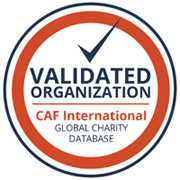300.000 đô la sẽ được phân phối cho thanh niên trong nhóm đầu tiên của chương trình thí điểm
Burlington, VT, ngày 9 tháng 8 năm 2023 - Mười thanh niên phải đối mặt với tình trạng vô gia cư hoặc có nguy cơ vô gia cư ngay lập tức đã được chọn tham gia chương trình thí điểm Chuyển tiền mặt trực tiếp (DCT) của Spectrum Youth and Family Services. Mỗi thanh thiếu niên sẽ nhận được tổng cộng 30.000 đô la trong suốt quá trình can thiệp kéo dài 18 tháng để hỗ trợ tiến trình đảm bảo nhà ở và sự độc lập.
Chương trình Chuyển tiền Trực tiếp của Spectrum được thiết kế để trao quyền cho thanh thiếu niên bằng cách cung cấp cho họ dòng tiền ổn định để giúp họ theo đuổi nhà ở, việc làm, giáo dục - bất cứ điều gì họ cần. Thanh niên sẽ nhận được 1500 USD mỗi tháng, được phân bổ hai tuần một lần trong 18 tháng. Thanh niên cũng có quyền truy cập vào khoản thanh toán một lần trị giá $3000 mà họ có thể yêu cầu bất kỳ lúc nào trong chương trình để hỗ trợ các chi phí lớn hơn như chi phí chuyển đến hoặc phương tiện đi lại đáng tin cậy.
Giám đốc điều hành Spectrum, Mark Redmond cho biết: “Merrill Lynch đưa ra một báo cáo vào năm 2020, chia sẻ rằng 79% cha mẹ Mỹ giúp đỡ con cái họ về mặt tài chính trong độ tuổi từ 18-34”. “Hầu hết thanh niên Spectrum không có tùy chọn này và đó là lý do tại sao chúng tôi bắt đầu chương trình Chuyển tiền mặt trực tiếp này. Chúng tôi muốn giúp đỡ chúng, giúp chúng bước vào tuổi trưởng thành — để cho chúng cơ hội được hỗ trợ tài chính giống như tôi, các con trai tôi và 79% gia đình Mỹ đã có. ”
Thanh niên quyết định cách sử dụng số tiền họ nhận được từ chương trình này. Spectrum cung cấp chương trình hỗ trợ để trang bị cho những người trẻ này những nguồn lực họ cần để đưa ra những quyết định mà họ cho là tốt nhất cho cuộc sống của mình.
Redmond tuyên bố: “Trong suốt chương trình, những người trẻ tuổi sẽ có quyền tiếp cận liên tục với người quản lý hồ sơ để hỗ trợ họ hiểu biết về tài chính, điều hướng nhà ở, quản lý hồ sơ và tiếp cận các giới thiệu khi cần thiết” .
Mười thanh niên này là nhóm đầu tiên mà Spectrum hy vọng sẽ là chương trình thí điểm kéo dài 3,5 năm với ba nhóm . Hai năm đầu tiên của chương trình được tài trợ hoàn toàn dưới dạng dự án Chi tiêu do Quốc hội chỉ đạo thông qua văn phòng Thượng nghị sĩ Welch và một nhà tài trợ ẩn danh.
Sara Brooks, Điều phối viên Tiếp nhận Nhà ở, đã đưa ý tưởng về DCT đến Spectrum và không thể thiếu trong việc lựa chọn giới trẻ. Brooks nói: “Chúng tôi biết rằng chúng tôi muốn sử dụng chương trình mới có tầm nhìn xa trông rộng này để hỗ trợ những người trẻ tuổi chưa được phục vụ tốt nhất ở Burlington - chúng tôi đã tỉ mỉ xây dựng, cùng với cộng đồng của mình (nhân viên, quản trị viên, thanh niên và chuyên gia đa dạng DCT), một chương trình kết hợp xổ số và ưu tiên công bằng mô hình để xác định người tham gia.”
Để thiết kế chương trình, Spectrum hợp tác với Point Source Youth (PSY), một tổ chức quốc gia chuyên xóa bỏ tình trạng vô gia cư của thanh niên ở Hoa Kỳ bằng cách trao quyền lực và nguồn lực vào tay thanh niên. PSY, một chuyên gia về các chương trình Chuyển tiền trực tiếp dành cho thanh thiếu niên vô gia cư hoặc nhà ở không ổn định, đã hỗ trợ Spectrum trong việc phát triển chương trình DCT đa sắc thái dành riêng cho thanh thiếu niên ở cộng đồng Burlington và St. Albans.
Mô hình DCT này, được gọi là “Cash Plus” (quỹ cộng với các dịch vụ hỗ trợ), ban đầu được thử nghiệm ở Thành phố New York và được nghiên cứu bởi Chapin Hall tại Đại học Chicago. Trong khi có một số thành phố khác có các chương trình DCT tương tự dành cho thanh thiếu niên trên toàn quốc, Spectrum là chương trình đầu tiên ở New England thí điểm DCT dành cho thanh niên phải đối mặt với tình trạng vô gia cư.
Với các thí điểm về thu nhập tương tự đã được nghiên cứu, nghiên cứu cho thấy tiền mặt chủ yếu được chi cho các nhu cầu cơ bản như thực phẩm, tiện ích và các nhu yếu phẩm khác. Những nghiên cứu này cũng phát hiện ra rằng việc cung cấp cho các cá nhân và gia đình đang vật lộn với nghèo đói một thu nhập ổn định, đáng tin cậy không dẫn đến những quyết định chi tiêu kém, tăng sử dụng chất gây nghiện hoặc giảm động lực làm việc.
Landon (LJ) Woolston, Giám đốc Chuyển tiền trực tiếp tại Point Source Youth, cho biết: “Phi công tiền mặt trên toàn thế giới đã chứng minh rằng những lầm tưởng xung quanh công việc DCT bắt nguồn từ sự kết hợp giữa các định kiến, phân biệt chủng tộc và chủ nghĩa giai cấp”. Đã làm việc cùng với Spectrum để thiết kế chương trình trong sáu tháng qua, Woolston nói rằng một trong những khía cạnh độc đáo của chương trình DCT của Spectrum là tiêu chí đủ điều kiện ưu tiên những người trẻ tuổi phải đối mặt với hoàn cảnh sống đặc biệt và danh tính bị áp bức (ví dụ: thanh niên da màu, LGBTQ+ thanh niên, thanh niên bị khuyết tật hoặc mắc bệnh mãn tính, nạn nhân bị buôn bán, thanh niên đang mang thai/nuôi con, v.v.). “Nhiều hệ thống vô gia cư của đất nước chúng ta không được thiết kế để hỗ trợ thanh thiếu niên; ngay cả khi có, họ cũng không hỗ trợ tất cả giới trẻ - đó là điều khiến DCT vừa cần thiết vừa hiệu quả,” ông nói.
Redmond rất lạc quan về chương trình thí điểm này , “Chúng tôi có một nhà tư vấn dữ liệu, người sẽ có thể cho chúng tôi biết trong vài năm tới liệu DCT có hoạt động hay không, liệu chương trình có tạo ra sự khác biệt hay không. Bởi vì nếu đúng như vậy, chúng tôi sẽ tạo điều kiện để tiếp tục và mở rộng nó.”
###
Tọa lạc tại Burlington, Vermont, Spectrum Youth & Family Services giúp thanh thiếu niên và thanh niên từ 14-24 tuổi đáp ứng các nhu cầu cơ bản của họ, tiếp cận tư vấn sức khỏe tâm thần và rối loạn sử dụng chất gây nghiện, đồng thời nhận trợ giúp về việc làm, giáo dục và sống độc lập để phát triển khi còn là thanh niên . Tìm hiểu thêm tại www.spectrumvt.org
Point Source Youth làm việc với các cộng đồng lớn và nhỏ, cùng với những người ủng hộ thanh niên địa phương để đảm bảo rằng trải nghiệm vô gia cư của thanh niên là hiếm, ngắn gọn và không tái diễn. Nhóm của chúng tôi thúc đẩy các giải pháp dựa trên dữ liệu, được khẳng định như tái định cư nhanh chóng, nhà ở cho người bản xứ và chuyển tiền mặt trực tiếp để trao quyền lực và nguồn lực trực tiếp vào tay thanh thiếu niên vô gia cư—tập trung vào thanh thiếu niên bị ảnh hưởng không tương xứng. Tìm hiểu thêm tại www.pointsourceyouth.org















Bình luận